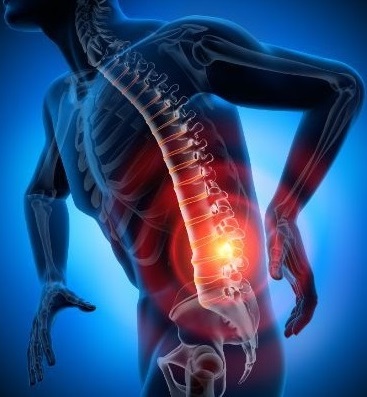Many people occasionally suffer from pain or stiffness in the cervical area. Sometimes, the causes of neck pain can be spinal deformities, injuries but also a heart attack or meningitis. In many cases, the pain is caused by a wrong posture.
Therefore, it is important to see a doctor, especially if the pain does not improve over time or is accompanied by other symptoms.
The neck is made up of vertebrae that extend from the skull to the trunk. Cervical discs are the ones that absorb shocks. The bones, ligaments and muscles of your neck support your head and allow you to move. Any deformity, inflammation or injury can cause pain or stiffness in the cervical area.
Most of the time, neck pain is not caused by a serious condition and can be relieved in a few days. But in some cases, neck pain may indicate injury or serious illness and may require a visit to the doctor.
CONTENT:
Causes
Neck pain caused by injuries
The neck is particularly vulnerable to injury, especially in the event of a fall, car accident and exercise, where the muscles and ligaments in the neck are forced to move outside their normal range.
If the bones of the neck (cervical vertebrae) are fractured, the spinal cord can also be damaged.
Myocardial infarction
Neck pain can also be a symptom of a heart attack, but there are other symptoms in this situation, such as:
- difficulty breathing,
- sweating,
- nausea,
- vomiting,
- arm or jaw pain.
If you have these symptoms, call an ambulance immediately. Myocardial infarction is a major medical emergency that requires immediate treatment.
Meningitis
Meningitis is an inflammation of the thin tissue that surrounds the brain and spinal cord. People with meningitis often have a fever and a severe headache. Meningitis can be fatal and is a medical emergency.
If you have symptoms of meningitis, seek medical help immediately.
Other causes
Other causes of neck pain include the following:
- Rheumatoid arthritis – causes pain, swelling of the joints and bone beaks. When they appear in the neck area, they can cause neck pain.
- Osteoporosis – weakens the bones and can lead to small fractures. This condition often occurs in the hands or knees, but can also occur in the neck.
- Fibromyalgia is a condition that causes muscle pain throughout the body, especially in the neck and shoulders.
As you age, your cervical discs may degenerate. This is known as spondylosis or osteoarthritis of the throat.
Spinal stenosis occurs when the spine narrows and puts pressure on the spinal cord or nerve roots as it exits the vertebrae. This may be due to long-term inflammation caused by arthritis or other conditions.
In rare cases, neck pain and stiffness may be due to the following:
- congenital anomalies,
- infections,
- abscess,
- tumors,
- spine cancer.
How to relieve neck pain
Depending on the problem identified at the clinical and paraclinical examination, the treatment may be through physical therapy and physiotherapy exercises, wearing certain collars for the spine or local massage. In advanced cases, where neurological signs also appear, surgical treatment is recommended.
Alternative therapies include:
- acupuncture,
- chiropractic treatment,
- massage,
- transcutaneous electrical nerve stimulation (TENS).
Be sure to seek the advice of a specialist when using these methods.
How to relieve neck pain at home
If you have minor neck pain or stiffness, follow these simple steps to relieve them:
- Apply ice in the first days. After that, apply a hot compress or take a hot shower;
- Take painkillers;
- A few days of rest and avoiding activities that aggravate your symptoms and lifting heavy objects;
- Do neck exercises every day. Slowly stretch your head with sideways and up and down movements;
- Correct your posture;
- Change your position often. Don’t stay in one position for too long;
- Do a light neck massage;
- Use a special neck pillow when sleeping.


